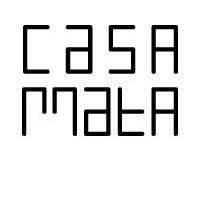Conference: “Sealed Gate: Prospects of the Turkey-Armenia Border”
The conference “Sealed Gate : Prospects of the Turkey-Armenia Border” organised by the Hrant Dink Foundation and Ankara University, Faculty of Political Science, Department of Economics was held in Ankara on November 22-23, 2014. The two-day conference featured 9 panel sessions and 27 presentations and was live streamed on the Foundation’s website www.hrantdink.org
The conference “Sealed Gate : The Prospects of the Turkey-Armenia Border” was opened with the welcoming addresses by the Hrant Dink Foundation President Rakel Dink, Foundation’s Board Member Cengiz Aktar and the Chair of the Department of Economics, Faculty of Political Science of Ankara University Prof. Dr. Onur Özsoy. The first day of the conference was dedicated to the theme of “sealed border” in the local and global context.
In her welcoming address, Rakel Dink noted, “We want to overcome all borders that take people hostage and keep them away from their conscience.” Cengiz Aktar underlined that all the scientific researches and symposiums undertaken by the Hrant Dink Foundation up until now had focused on memory and conscience calling for reason and that this particular conference was also a platform to open eyes and channels to move forward. In his welcoming address, Prof. Dr. Onur Özsoy made an appeal and said “Let us open borders for peace and stability.” The historical background of the sealed border, the stories of people living in the border regions, and the “Nagorno-Karabakh conflict” - a barrier before the Turkey-Armenia normalisation process - were amongst the topics that were discussed in the first day of the conference.
The panel “Sealed Border and Neighbours” chaired by Ahmet İnsel as well as the panel “Sealed Border Beyond Neighbours” chaired by Soli Özel focused on the Nagorno-Karabakh conflict between Armenia and Azerbaijan and discussed the implications of the conflict on the Turkey-Armenia normalisation process. Thomas de Waal, senior associate at the Carnegie Endowment for International Peace and the author of the book Black Garden recently published in Turkish by the Hrant Dink Foundation Publications, pointed out to the importance of the conflict noting, “The Nagorno-Karabakh conflict which sealed Armenia’s border with two neighbouring countries is not a frozen conflict. On the contrary, it is a living conflict which continues to claim lives even today. If there is no peace deal and if the tension escalates further, the conflict will have destructive consequences.”
In its second day, the Sealed Gate conference discussed possible cross-border economic cooperation opportunities as well as the socio-economic impact of the Turkey-Armenia border. The panel “Open Borders, Open Markets” chaired by Kemal Kirişci featured a presentation by Ussal Şahbaz from the Economic Policy Research Foundation of Turkey (TEPAV) who presented the opportunities offered by open borders for entrepreneurs. Zümrüt İmamoğlu from Bahçeşehir University Center for Economic and Social Research (BETAM) presented the findings of the “Research on the Socio-Economic Impact of the Turkey-Armenia Border” conducted by the Hrant Dink Foundation, BETAM and Social Research Center (SAM) and elaborated on the negative socio-economic impact of the sealed border in the region.
The panels “Open Borders, Open Minds” chaired by the journalist Amberin Zaman and the Director of the Armenian Communities of the Calouste Gulbenkian Foundation Razmik Panossian shed light on the cultural diversity of the border regions including their language and music.
The panel “Beyond Open Borders” chaired by Asaf Savaş Akat discussed the prospects of civil society dialogue and track two diplomacy between Turkey and Armenia in the context of the sealed border.
The last panel session of the conference “Sealed Gate : The Prospects of the Turkey-Armenia Border” was chaired by Marc Pierini, former head of the Delegation of the European Union to Turkey who is currently a visiting scholar to Carnegie Europe. The panel titled “The Prospects for Open Borders” elaborated on the possibilities of local development initiatives that could help the region to realise its cross-border potential as well as possibilities for settlement of conflicts in the Caucasus.
The conference ended with an evaluation session that featured assessments on the prospects of the sealed Turkey-Armenia border by Cengiz Aktar, Board Member of the Hrant Dink Foundation and Salpi Ghazarian, the President of the Board of Directors of Civilitas Foundation - a think tank and media organisation based in Armenia. According to Aktar, “1915 drew mental borders and created a status quo; however the genie is already out of the bottle and one cannot put the genie back in the bottle.”, whereas Ghazarian noted “We are aware that the last decade is different than the previous 90 years. We have to move forward and beyond the discourse of ‘We share the same food, we share the same culture’ and we need to undertake bigger steps.” While reminding the responsibility of states, the evaluation session emphasised that the only way to overcome borders is the contacts between the peoples of the two countries as well as efforts and demands in this respect.
The panel sessions of the conference “Sealed Gate : Prospects of the Turkey-Armenia Border”, held in Ankara University, Cebeci Campus, Aziz Köklü Conference Hall, were watched online by 1,920 people on the Foundation’s website www.hrantdink.org and will be uploaded to the YouTube channel of the Hrant Dink Foundation in the coming days.








